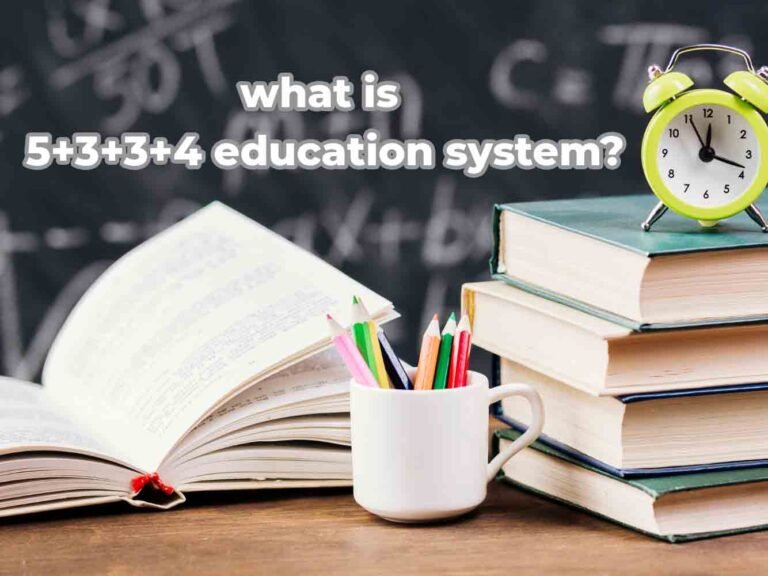Introduction
Teaching special education is a fulfilling path requiring enthusiasm, commitment, and a certain set of abilities. For kids with impairments, special education teachers are quite important since they enable them to reach their best potential. These teachers deal with pupils with a spectrum of learning, mental, emotional, physical, and handicaps. They offer tailored courses that meet every student’s needs, therefore fostering an environment suited for each one of them to grow. If you are considering this line of employment, you should be informed of the qualifications, the phases involved, and the advantages and difficulties of this vital role.
Starting the road to being a special education teacher calls for more than just a degree. It calls for a strong will to support students who sometimes have great obstacles on their path to learning. Constantly changing their approaches to fit the various requirements of their children, special education teachers have to be patient, sympathetic, and innovative.
From earning the required credentials to getting practical classroom experience, the path is demanding yet rewarding. This book will walk you through the process of choosing a profession in special education, therefore arming you with the knowledge and skills required to succeed in this vital discipline.
What is Special Education?
Special education is a specific area of instruction designed to meet the particular requirements of individuals with impairments or learning problems. These can cover cognitive problems, emotional and behavioural obstacles, physical disabilities, developmental diseases, or physical ones. Special education’s main objective is to give these pupils customized learning opportunities so they may realize their best potential. Special education is changing the curriculum, giving each student tailored instruction, and applying specific tools and approaches to assist with their learning.
This inclusive strategy guarantees that every student from all backgrounds can access high-quality education. Special education also stresses the acquisition of abilities that support self-advocacy and independence, therefore enabling children to participate actively and helpfully in society. Working closely with parents, experts, and other professionals, teachers and educators in this discipline design thorough learning plans that meet the particular needs of every kid, therefore promoting an environment of understanding, acceptance, and development.
Understanding the Role of a Special Education Teacher
Providing pupils with the help they need to achieve academically, socially, and emotionally, a special education teacher is absolutely vital in their lives. Developing and carrying out customized education programs (IEPs) catered to every student’s particular need falls to these teachers. They carefully coordinate general education teachers to guarantee students are as much as possible incorporated into the classroom environment and modify courses to fit various learning styles.
To meet the different difficulties their children can encounter, special education instructors also work with psychologists, occupational therapists, and speech therapists, among other experts. Apart from providing academic knowledge, special education teachers also concentrate on developing life skills, social skills, and self-advocacy, therefore empowering their pupils in confidence and autonomy. They also represent champions for their pupils, making sure they have the tools and support needed to flourish. To properly fulfil the various requirements of their children, special education teachers must be patient, sympathetic, and flexible.
Which Diploma is Best for Special Education?
Choosing the correct qualification or certification is essential for getting the required skills and information while thinking about a job in special education. Several credentials in Pakistan fit for special education exist; among the most well-known ones are the Postgraduate Diploma in Special Education and the Diploma in Education for Special Needs. Usually aiming at people who already have a bachelor’s degree and wish to specialize in this sector, the Postgraduate Diploma in Special Education addresses inclusive education, evaluation and intervention techniques, and educational psychology, among other things.
Designed for teachers wishing to become experts in educating children with disabilities, the Diploma in Education for Special Needs is another often sought-after choice. This credential emphasizes useful competencies such as knowing the particular needs of various disabilities, adjusting instructional strategies, and applying assistive technologies.
Though they are acknowledged by educational institutions throughout the nation, both degrees offer a strong basis for a future in special education. Your present credentials and professional objectives will determine the diploma you should choose, although both choices provide insightful instruction for future special education instructors.
How to Become a Special Education Teacher in Pakistan?
Being a special education teacher in Pakistan entails a sequence of professional and educational actions meant to equip people to work with pupils with disabilities. Getting a bachelor’s degree in education—with an eye toward special education—comes first. This degree offers a basic understanding of child psychology, instructional strategies, and the particular requirements of special education children. Many would-be special education teachers then seek a specialist certification or master’s degree in the field, which provides more in-depth instruction and real-world experience.
Certain programs could call for internships or student teaching placements, in which candidates get practical knowledge dealing with special needs pupils. Depending on regional criteria, candidates might also have to pass certification tests or acquire a teaching license, particularly for special education.
In this discipline, ongoing professional development is absolutely vital since it keeps teachers current on the most recent teaching techniques and tools for assistive learning of children with disabilities. In Pakistan, the road to become a special education teacher requires dedication, particular instruction, and a passion to let children realize their best possible future.
Is there a way to become a special education teacher without a degree?
There are many options for special education, but most require a degree. In some areas, someone with a background in education or a similar discipline could be able to get a provisional teaching license or alternative certification. Usually involving finishing a teacher training program, passing certification tests, and obtaining classroom experience these programs Sometimes, those with degrees in a different profession could be able to enter special education via further coursework or certification courses.
Additionally, offering great experience and prove a dedication to the field is volunteering or working as a teaching assistant in a special education classroom. Certain companies and colleges might also provide internships or training courses leading to certifications. Though criteria differ by location, earning a degree in special education is still the most accepted and dependable route to work as a special education teacher.
Special Education Teacher Salary
Factors including geography, degree of experience, and educational background can all greatly affect a special education teacher’s pay. Generally speaking, Pakistan pays special education teachers less than nations like the USA, Canada, or the UK. Depending on the institution and area, entrance-level special education instructors in Pakistan could make anywhere from PKR 30,000 and PKR 50,000 a month. Experience helps earnings rise; individuals employed in private colleges or overseas universities may make more money.
By contrast, with variances depending on the state and district, special education instructors in the USA can expect to make a median annual compensation of about $60,000. Special education teachers in Canada often make CAD 60,000 to CAD 80,000 a year. Although special education teachers’ pay can be meagre overall, the benefits of improving children’s quality of life usually exceed the financial considerations.
How to Become a Special Education Teacher with a Psychology Degree?
Being a special education teacher can benefit much from a psychology degree since it offers an understanding of human behaviour, learning strategies, and developmental issues. Usually, people must finish more study or earn a specific teaching certification in order to move from psychology to special education. Many colleges include post-graduate or master’s programs in special education tailored for those with backgrounds in psychology or allied disciplines. These courses sometimes cover special education law, instructional methodologies for kids with impairments, and classroom management skills.
Candidates also have to finish a supervised teaching practicum to have practical knowledge dealing with special needs children. Those who have completed the required training and education must get state or provincial certification to teach special education. This could entail completing tests and fulfilling other local-specific criteria. In special education, a psychology degree increases the understanding of the cognitive and emotional demands of children with impairments.
How to Become a Special Educator in the USA?
Teaching special education in the United States requires a combination of certification, training, and practical experience. Usually beginning with a bachelor’s degree in special education or a related field, students examine teaching strategies, child development, and the specialized needs of individuals with disabilities.
Aspiring special education teachers have to get state certification following their degree, which usually requires passing a battery of tests. Particularly for senior teaching roles, some jurisdictions may also demand a master’s degree in special education. Another important component is gaining practical experience by means of internships or student teaching, which lets applicants put their knowledge into use in actual classroom environments. From those with modest learning disabilities to those with significant physical or cognitive issues, special education teachers in the USA must be tolerant, flexible, and adept in interacting with a varied spectrum of students. Furthermore crucial is ongoing education since it guarantees that teachers stay current with new research, teaching strategies, and tools meant to improve the performance of their classroom.
How to Become a Special Education Teacher in Florida?
Those wishing to be Florida special education teachers have to follow a particular road including education, licencing, and continuous professional development. First is completing a special education bachelor’s degree from a respected college or university. Along with field experiences in classrooms—including children with disabilities—this degree should include coursework in teaching techniques, child psychology, and special education law.
After degree attainment, prospective teachers have to pass the Florida Teacher Certification Examinations (FTCE), which consists of the General Knowledge Test, the Professional Education Test, and a subject area exam in Exceptional Student Education (ESE). Certified teachers must continue their professional development to remain current with the newest teaching practices and laws and to keep their certification. Florida also offers several certification routes for people who want to pursue special education yet currently hold a bachelor’s degree in another field. Usually involving finishing a teacher preparation program and passing the necessary tests, these other paths.
How to Become a Special Education Teacher in Canada?
Being a special education teacher in Canada requires one to get province certification and satisfy particular educational requirements. Usually starting with a bachelor’s degree in education (B.Ed.), the path usually starts with specializing in special education. Coursework on inclusive education, child development, and specific teaching practices for kids with varied needs makes up this degree program. Prospective teachers also have to finish a term of supervised teaching practice, sometimes known as a practicum, when they get practical knowledge of handling special needs children.
Candidates must apply for certification through the regulatory organization in their province or territory—such as the Ontario College of Teachers (OCT) in Ontario or the British Columbia Teacher Regulation Branch (TRB) in British Columbia—after their education is complete. Certain provinces could demand extra certification in special education, which one can get by means of professional development courses or additional study. In Canada, instructors are required to be current with the newest instructional strategies and policies pertaining to special education. Hence, constant professional development is vital here.
How to Become a Special Education Teacher in NJ(New Jersey)?
Among other credentials, New Jersey (NJ) special education teacher requirements call for education, certification, and some practical experience. First comes obtaining a bachelor’s degree in special education or similar connected field from an approved university. Along with a supervised teaching practicum, this degree program should include courses in teaching techniques, child development, and special education law.
Once their degree is earned, candidates must apply for a teaching certification through the New Jersey Department of Education (NJDOE). This means finishing the Core Academic Skills for Teachers and the Special Education: Core Knowledge and Applications examinations. Apart than these tests, candidates have to complete a teacher preparation program either through their bachelor’s degree or another post-baccalaureate program.
Certified teachers have to maintain their professional development to keep current on the newest teaching practices and laws and to keep their certification. New Jersey also offers several certification routes for individuals with a bachelor’s degree in another field wishing to enter special education.
How do a person become a Massachusetts Special Education Teacher?
Special education lecturers in Massachusetts possess qualification, certification, and knowledge. The road starts with obtaining a special education bachelor’s degree from a recognized college or university. Apart from supervised teaching practicals, this degree program contains courses on teaching tactics, child development, and special education law.
Applicants for special education instructors must pass the Massachusetts Tests for Educator License (MTEL) and the Teaching, Communication, and Academic Skills exam following degree completion. The test consists in two sections: Literacy Skills and Fundamentals of Reading and Communication. To be qualified as teachers, candidates must pass these tests and seek application to the Massachusetts Department of Elementary and Secondary Educational Services (DESE).
Teachers must possess at least three years of experience and a postgraduate degree in special education in order to be qualified for a Professional Educator License. Moreover crucial in Massachusetts is ongoing professional development since it guarantees teachers stay current with new technologies, pedagogogical strategies, and research.
In Illinois, how do I become a special education teacher?
Teaching special education requires certification, knowledge, and practical experience in Illinois. First comes getting a special education bachelor’s degree from an approved university. This degree program consists of courses in teaching methods, child growth, and special education legal issues in addition to supervision of teaching practice. Among the several assessments teachers have to pass are the General Curriculum test, Teachers’ Assessments of Proficiency (TAP), and the Illinois License Testing System (ILTS).
A special education certificate on a Professional Educator License (PEL) is obtained from the Illinois State Board of Education (ISBE). Maintaining their professional development can help licenced teachers keep their certificates and be current with the most recent teaching strategies and policies. Illinois also offers other certification routes for students who want to pursue special education but currently hold a bachelor’s degree in another field.
How to Become a Special Education Teacher in PA(Pennsylvania)?
Being a special education teacher in Pennsylvania (PA) requires among other things education, certification, and practical experience. Getting a bachelor’s degree in special education or another allied discipline from an authorized university comes first. This degree program should combine coursework in teaching techniques, child development, and special education law in addition to a supervised teaching practicum. Candidates must complete the Pennsylvania Educator Certification tests (PECT), which combine the Pre-service Academic Performance Assessment (PAPA) and the Special Education PreK-8 or 7-12 tests following degree achievement, depending on the age group they intend to teach. Candidates must next apply for a Pennsylvania Department of Education (PDE) teaching certification.
Certified teachers have to maintain their professional development to remain current on the newest teaching practices and laws and to retain their certification. Pennsylvania also offers alternative certifications for those with a bachelor’s degree in another field who wish to pursue special education. Because it ensures that instructors remain current with new technologies, teaching practices, and research, continuous professional development is very crucial in Pennsylvania.
Conclusion
Choosing to work in special education in Pakistan is a rewarding and powerful path. It calls for a mix of specific knowledge, practical experience, and a strong will to assist kids with various needs. Children with special needs can benefit much from your following of the road of acquiring the required qualifications, gaining practical experience, and always improving your abilities by means of professional development. The demand for educated professionals is rising as the area expands presents a fulfilling career with chances to influence Pakistan’s educational system favorably.
FAQs
1. In Pakistan, what qualifications does one have to be a special education teacher?
Usually, one must have a Master’s degree in the same discipline to qualify as a special education teacher in Pakistan. Certain schools might additionally want a teaching certificate.
2. How long does it normally take to get license of special education teacher?
It depends on your degree and experience, to become certified and qualified special education teacher. Normally it can take upto six years of training and schooling.
3. What is Pakistan’s demand for special education teachers?
Indeed, Pakistan’s demand for special education teachers is rising as knowledge of special education needs spreads throughout the nation.
4. For a special education teacher, what skills are essential?
Good interpersonal skills, understanding, tolerance, versatility, and a comprehension of numerous instructional strategies and learning difficulties are essential skills.
5. Can one work as a special education teacher having a general education degree?
A basic education degree may also include special education, but if you wish to specialize in it, you will most likely need more qualifications.






















